Rising Folk Star Nell Mescal Is Winning Over Gen Z with Her Brutally Honest Songwriting
The Irish artist and younger sister to Paul Mescal released her debut EP 'Can I Miss It For A Minute?' on May 3.
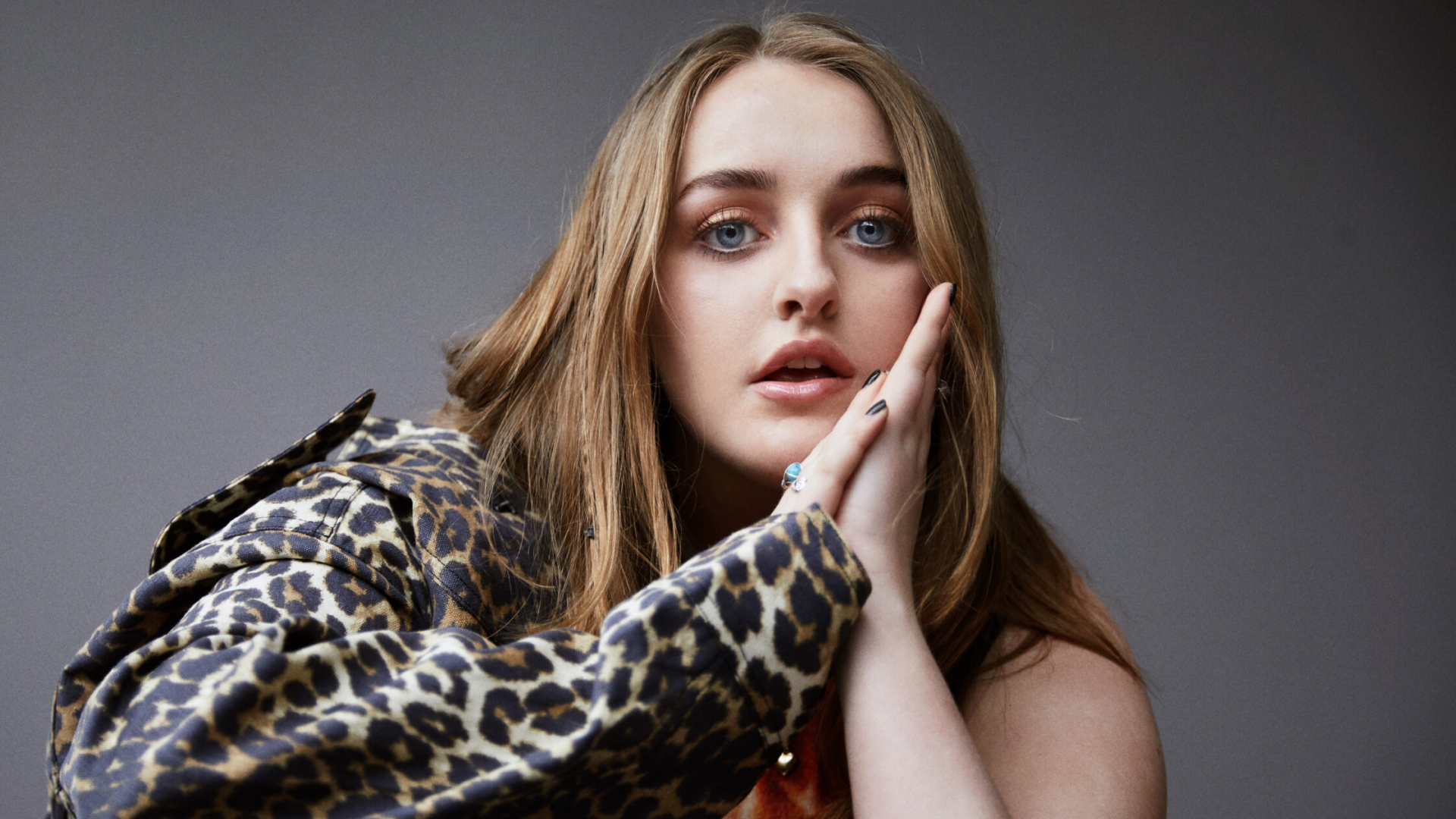
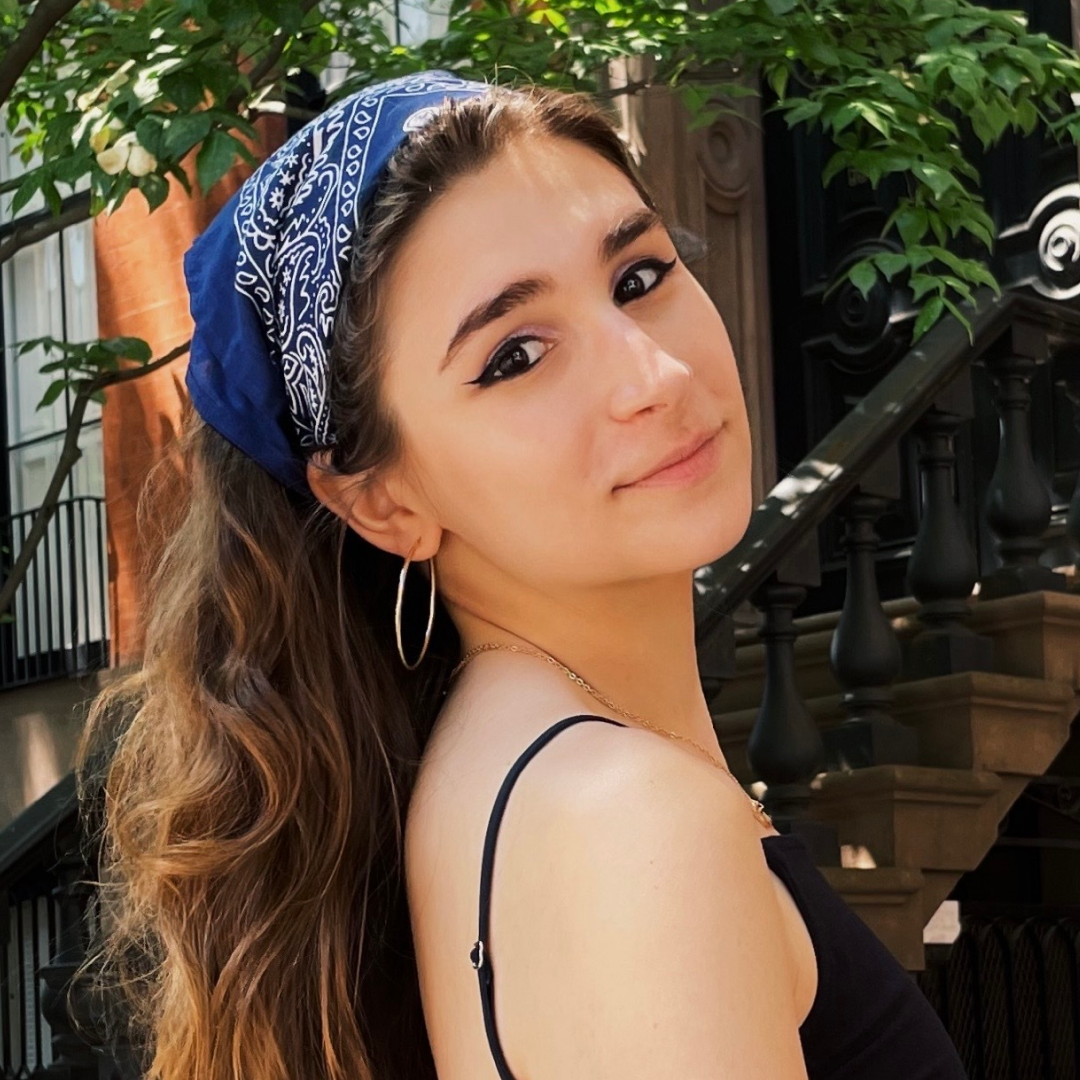
Many people can’t help but cry on their birthdays, but on April 28, when Nell Mescal turned 21, she wanted to “let it all out.” The Irish singer-songwriter’s tears were partially brought on by seeing one of her favorite artists, indie phenom Adrianne Lenker, perform at The Barbican in London with her brother, actor Paul Mescal, and partially because she has so much to celebrate. Not only was the rising folk artist celebrating a milestone birthday, but she was gearing up to release her debut EP Can I Miss It For a Minute? on May 3 (via LAB Recordings), and feeling fulfilled by finally being able to share it with the world.
“I was just like, This is such an overwhelming amount of love that I'm receiving,” Mescal tells Marie Claire over Zoom from her home in London, where the Maynooth, Ireland-born musician is now based.
It is an exciting moment for Mescal, as her debut comes nearly two years after she began to find a devout Gen Z fanbase that connected with her diaristic, yet self-aware, songwriting. (Even more fans came on board when went viral for posting her family’s heartwarming reaction to Paul’s 2023 Best Actor Oscar nomination). It’s emotional, too, because the EP sees the singer mining through how a friendship fell apart. She does so in a way that finds her committing even further to painstakingly honest songwriting—opening the EP with the verse, "I'll take a warm body / If I can't have love / Or I'll go out drinking / 'Til I find the one," on the track "Warm Body," and singing confrontational choruses like, "I'm not gonna forgive you / 'Cause you're crying at a song I wrote you last year / It's been a whole year," on "Electric Picnic." It's the kind of earnestness her young fans have latched onto in both her standout earlier singles like “Homesick” and in her online presence.
“If it's not honest, it's not worth it to me,” says Mescal. And with that, she brings a pointed Gen Z sensibility to contemporary folk-pop and continues her ascension as an artist-to-watch.
Below, the Irish star discusses her upbringing, whirlwind past few years performing with Phoebe Bridgers and Florence and the Machine, the Can I Miss It For a Minute? EP, and more.

Nell Mescal for the Can I Miss It For A Minute? EP.
Marie Claire: You’ve since left home, but Ireland has been having somewhat of a pop culture moment. Did you love it growing up or were you like, I need to get away?
Nell Mescal: I never thought about leaving properly until I started doing music. I love my home and I love all the memories I have. I love the whole country—I've got family in the west of Ireland and in the south. I never thought I would leave, until, all of a sudden, I realized I had to. But even at that, I love going home and I can't wait every time I do go home. It's cool to see it get so much love recently.
Stay In The Know
Get exclusive access to fashion and beauty trends, hot-off-the-press celebrity news, and more.
MC: Your music has a folk sound and Irish music has its folk lineage. Do you feel like Ireland has inspired you in that way?
NM: Definitely. It's strange because, when I'm writing the songs, I don't inherently mean to make them feel more Irish or anything. It's just in the lyrics that pour out of me in the sense of talking about being a child because being Irish is who I am, so it’s without even trying to say it. Sometimes I'm talking about home and that’s what makes it Irish to me because I had a very Irish upbringing. Without thinking about it, it just happens.
The folk thing is something that I've definitely been wanting to do more of. With this EP, I was really glad that I got to take the folk inspirations that I have and put them into [the project], because previous to that, it was much more indie pop. I'm glad I'm doing the indie folk route with a little bit of pop in it because I love pop music and I think there's a real need for that sometimes. I like that I've been able to do a few different genres, and, I guess, some of that is a little bit Irish. It's fun not to box yourself in.
MC: It sounds like you came from a very musical family; you and your dad used to perform in talent shows together. Do you have any favorite music memories from growing up?
NM: My dad plays guitar and piano, and he would always try and teach me, but I was very stubborn in the fact that I was like, ‘If someone's going to teach me, it's not going be you because I will shout back like, ‘I can’t! I don’t need to be taught.’ But we did this talent showcase that was called Score. It was just going up and singing old folk music. The song we would always do was ‘Caledonia,’ [the Scottish folk song by Dougie MacLean]. He would play guitar and I would sing it. It was really special.
I was involved in so many different music groups growing up. I was in a glee club when I was 6 and then in choirs. It's funny because I always say now that I didn't realize how much live music and playing live shows would affect me. But I think it's because of that break during COVID when there was nothing. I'd never done a proper live show, but that break I stopped performing completely—I wasn't doing choral shows, or even showcases with my singing teacher or anything that I was so used to doing that for my whole life. And then all of a sudden, the next show I do is to people that listen to my music and it's with a band; it was crazy. It felt like where I should be because that's where I've been my whole life, and that stemmed from playing with my dad and him doing that talent show with me.
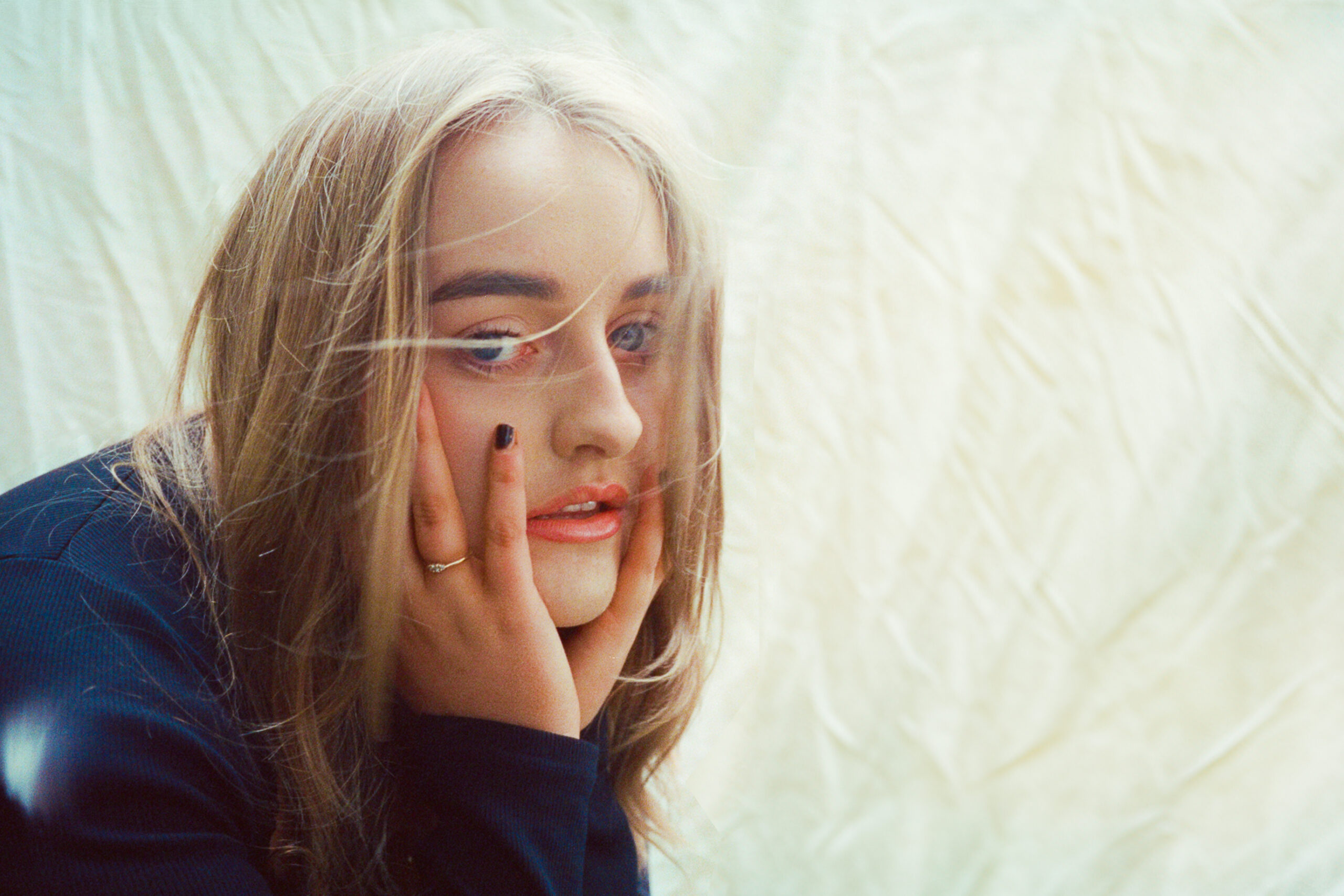
Nell Mescal for the Can I Miss It For A Minute? EP.
MC: After you decided to drop out of school in 2021, you moved to London shortly after to pursue music seriously on your own. Was that an isolating experience?
NM: It was. I'm coming up in my third year and I keep saying [in[ only the past year have I figured it out. It still can be quite difficult, but the first year was, for better or for worse, one of the hardest things I've ever had to do. It was so, so lonely and so isolating and so hard. Sometimes I think, Maybe that was a bit harsh and I could’ve waited a few more months. But as hard as it was, I knew it had to be that way. I do think that everything I did, I did for a reason. That year of being alone and trying to figure things out was so crucial—so crucial to the music, but also for personal growth.
MC: Now you’re such a part of the London music scene. What was it like finding your own community there?
NM: When I first moved, my manager was like, ‘Just go and see any show that you want to.’ I was turning 17 when COVID happened, so I didn't get to see shows properly growing up. I only saw the big ones—like I saw One Direction, which was amazing—but I wasn’t going to all these smaller gigs. So I went to shows that were wildly different; I was at Self Esteem and then I was at Fontaines D.C.
I found that there are a lot of Irish people in London. They opened up their arms to me. One of my best friends, Lucy Blue—she's also a singer—we became friends and then we lived together. I feel like you go and you try to find people that you can immediately relate to when you're far away, so it was just Irish people, and Irish people again and again.
MC: Your EP is about a friend breakup, which is such a unique experience and can be really difficult for girls and young women especially. How did you realize that you needed to process that experience through songwriting?
NM: Because it happened to me. And it happened to me a lot. I think you're right—like, [girls] share so much. There’s the whole stigma of like, Men need to talk to each other a bit more. Girls, when you’re sensitive and you’re emotional and you're talking about things, you open up so much more of yourself. So when these friendships fall apart, I think it's more painful than a breakup with a partner because you tell these people all the problems in those relationships. These people are supposed to know you through and through, so when it falls apart, it does feel like part of you is gone. It can be so isolating because it's never just like one thing because other friends hear about it and it trickles through everything.
I also wanted to write something that made me feel like it's not the end of the world when those things happen. I wasn't listening to songs about friends [when I was going through this experience]. You're taking love songs and trying to put them to platonic relationships, and that can be quite difficult. I wanted to make something that I would have wanted to hear when I was going through it.
That's why I ended up on “July” because I was like, I want people to know that it's not this isolating thing, and it does get better and it's fine. These things are supposed to happen. It's supposed to change and it's supposed to grow.
MC: Why was it important to you to take such a mature approach and write songs like “Warm Body” that look inward, while still looking at the situation as a whole?
NM: I always try to be careful about how I write because it's never just what happened to me—it's what happened to both of us—so trying to get both viewpoints is important to me. But also, in telling the truth, sometimes that can be hard for other people to hear, and hard for me to hear.
If it's not honest, it's not worth it to me. I'll go as far even if I'm like, Oh, this feels like I'm bearing a lot, but if it's for the sake of the writing, I think getting to hear someone else's experience is helpful. It was very selfish EP, but I was like, I need to have the songs there, so I can listen to them when I'm feeling sad.
When I started writing, I was like, I love this. It feels so cathartic and so perfect. When I wasn't in therapy, this was the only thing that was getting me through.
MC: On your 2023 song “Teeth,” you sing, “I think you read my journal,” and now your songwriting is quite diary-like. What has it been like getting to a place where you feel comfortable doing that?
NM: My opinions on it change a lot. With my songs from last year, which I love, I felt like I was still trying to figure it out. They're still honest and they're still real, but I was a bit more vague. With this EP, I wanted to say everything. I am so far away from that point when this all happened at 17, 18, 19. When you not only separate yourself emotionally, but when you're physically so far away from when it happened—it’s taken me three years to get over this and people could argue I’m not over it because I’m writing a whole EP about it—but when you're that far away, when you write the songs, you're like, Okay, I don't care that I'm being this honest, because it's just very matter of fact.
On the flip side, I'm writing songs now and it could be a love song and I'm like, Oh, do I really want to say this? This person is going to hear it and is in my life. That scares me a bit more. I could be as honest as possible if it's about a situation that ended or was a sad situation. Whereas, when it comes to a love song or a happy song, I'm more like, I don't know how to dial this back. It's too confronting and too, like, nerve-wracking. It's like telling someone that you have a crush on them. I do not like to do that! I'm in between two minds constantly on how much I share.
MC: The EP title comes from a line in the track “Electric Picnic” and it seems to reflect on how you may still be nostalgic for a friendship, even after it’s over. How did you decide on the name?
NM: 10 minutes before the [EP] deadline, I was like, I have to change I have to change [the name]. I played “Electric Picnic,” and thought, This sums up the whole thing. These friendships were never final in the sense of, ‘I hate these people.’ There's so much love and saying, ‘Can I miss it for a minute?’ encapsulates that whole feeling of, This was really sad. It did change me and made me move. But I do miss her, and I miss home, and it's also talking about just missing being 16 when things were fine. It’s wanting to look back through rose-colored glasses, pretend everything was fine, and that maybe I could go back.
MC: You’ve had a whirlwind the past few years, playing shows with artists like Florence and the Machine, Haim, and others, and joining Phoebe Bridgers on stage. What would younger Nell think about how you’ve pursued music and been able to connect with so many fans through your very earnest folk music?
NM: She would be like, ‘What the actual f--k?’ When I was growing up, I knew I loved music. I knew I loved performing. I thought maybe I would do musical theater. When I started writing, I was like, I love this. It feels so cathartic and so perfect. When I wasn't in therapy, this was the only thing that was getting me through. Now I have both, which is needed.
My biggest inspiration when I first started writing was Birdie and I got to support Birdie. Telling my family that I was supporting my hero was the most emotional I could have ever been. Then Florence [and the Machine] and all these things, it’s like you only do that for your younger self because those are your heroes. It's something that I'm consistently still pinching myself over. Even getting to play my own [headlining shows], I can't even believe it. Looking in rooms, they're the sweetest faces staring back at me and so kind it's the most it's the craziest thing ever. I don't know how she would believe it, but it's happening.
A photo posted by nellmescal on
MC: It seems like you’ve found your fashion sense in the past few years—performing on stages in long skirts, corsets, and even some pieces with an homage to Ireland. Where have you found your style inspiration?
NM: I've always been a bit insecure in my body and I got bullied for how I looked growing up. I always thought you can only wear black and stuff that doesn't show anything. Then I met my stylist, Molly Ellison—we're the same age—and she's changed my life because she showed me that it's okay to show your body. She would put me in outfits that I was like, ‘There's no way I'll look good in that,’ or, ‘There's no way I'll fit into it,’ she was like, ‘You just need to trust me.’ Now, she will throw anything at me and I'm like, ‘I trust you and it's fine.’
[With the stage looks], the corsets and long skirts are nice to have something flowy, but also something a bit tighter so you feel supported. It's exciting to me to play more shows and figure out [my style] because I think it's such a cool part of the show. The past few years have been fun for that, and so healing. It takes a long time [when dealing with insecurities] to figure out that, No, you're slaying and you look great, even on your worst days. No one can make you feel that small because it's not real. I'll be learning that forever. But having people like Molly, she’s the best and has been huge for my confidence on stage.
This interview has been edited and condensed for clarity.

Sadie Bell is the Senior Culture Editor at Marie Claire, where she edits, writes, and helps to ideate stories across movies, TV, books, and music, from interviews with talent to pop culture features and trend stories. She has a passion for uplifting rising stars, and a special interest in cult-classic movies, emerging arts scenes, and music. She has over eight years of experience covering pop culture and her byline has appeared in Billboard, Interview Magazine, NYLON, PEOPLE, Rolling Stone, Thrillist and other outlets.
-
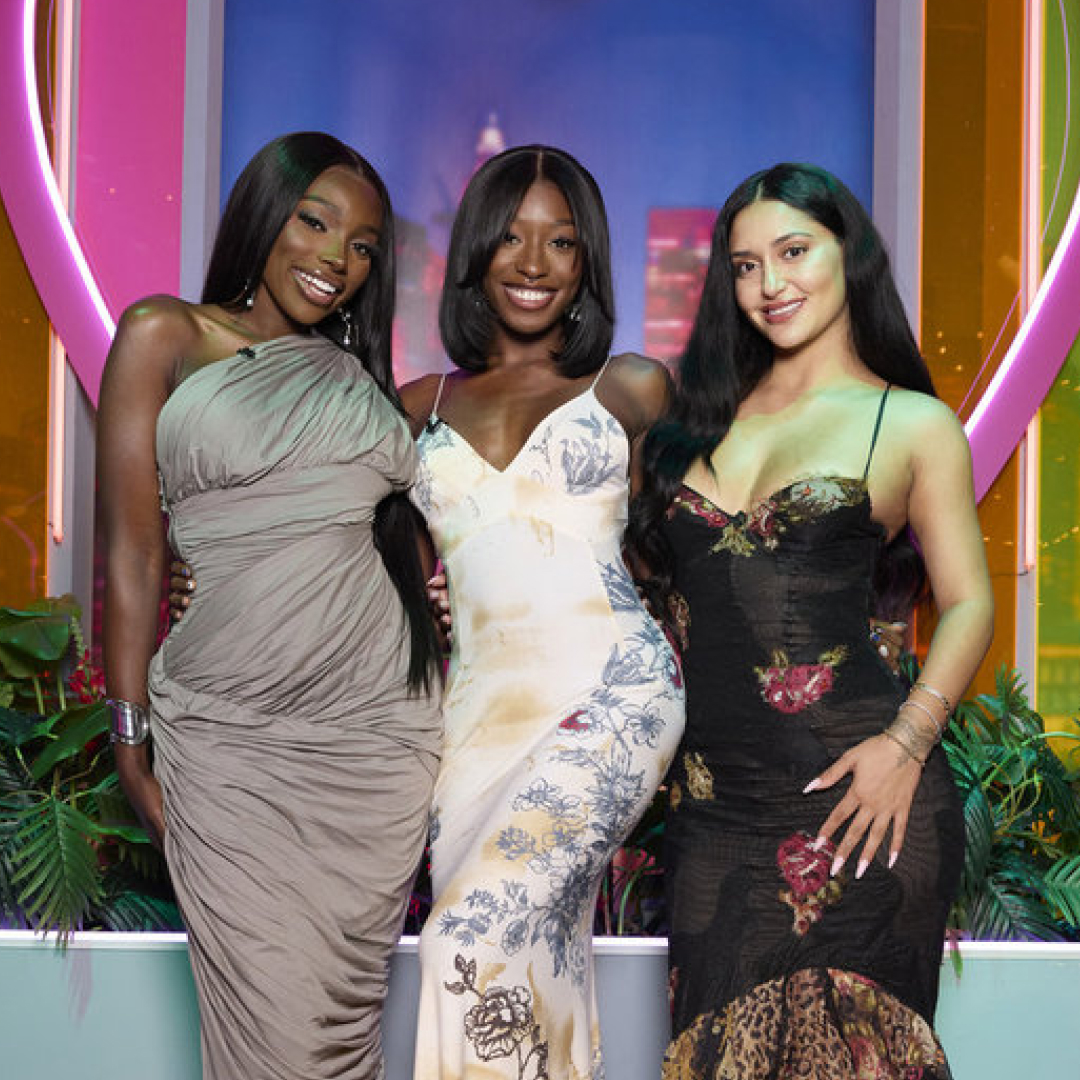 Let's Go, PPG, Fans! A New Peacock Series Starring the 'Love Island USA' Season 6 Cast Is Coming Soon
Let's Go, PPG, Fans! A New Peacock Series Starring the 'Love Island USA' Season 6 Cast Is Coming SoonWe're already clearing our summer schedules for 'Love Island: Beyond the Villa.'
By Quinci LeGardye
-
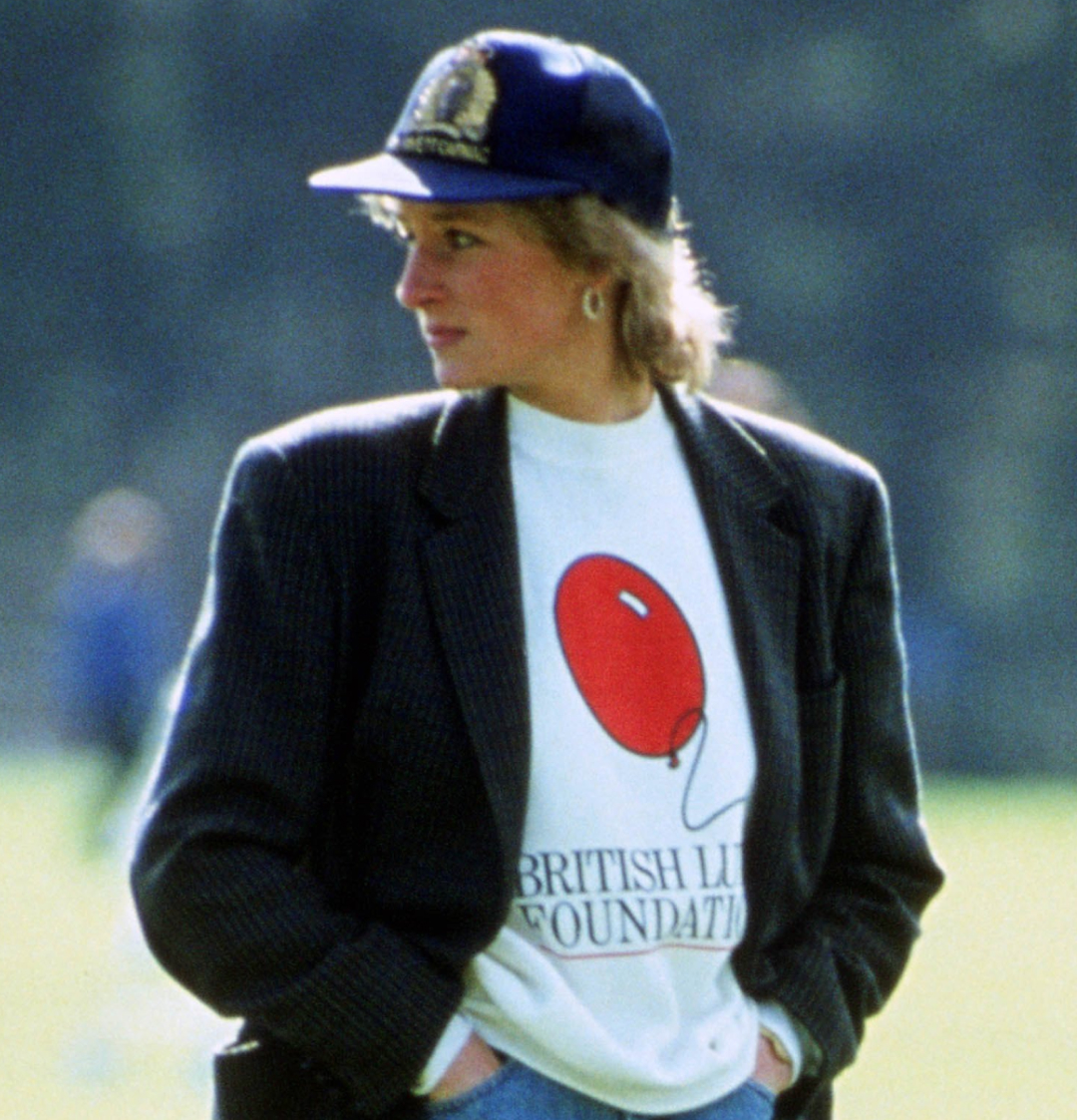 Why Princess Diana Didn't Move to America
Why Princess Diana Didn't Move to AmericaThe late royal's friend opened up about the princess's American dream.
By Kristin Contino
-
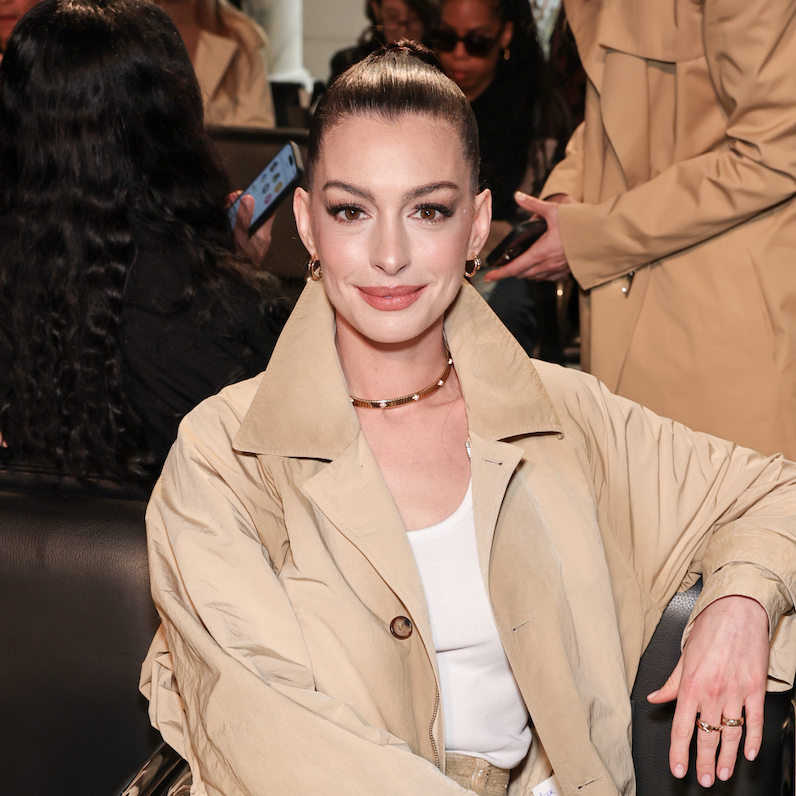 Anne Hathaway Doubles Down on Luxury's Favorite Neutral
Anne Hathaway Doubles Down on Luxury's Favorite NeutralShe painted herself in the timeless hue.
By Kelsey Stiegman